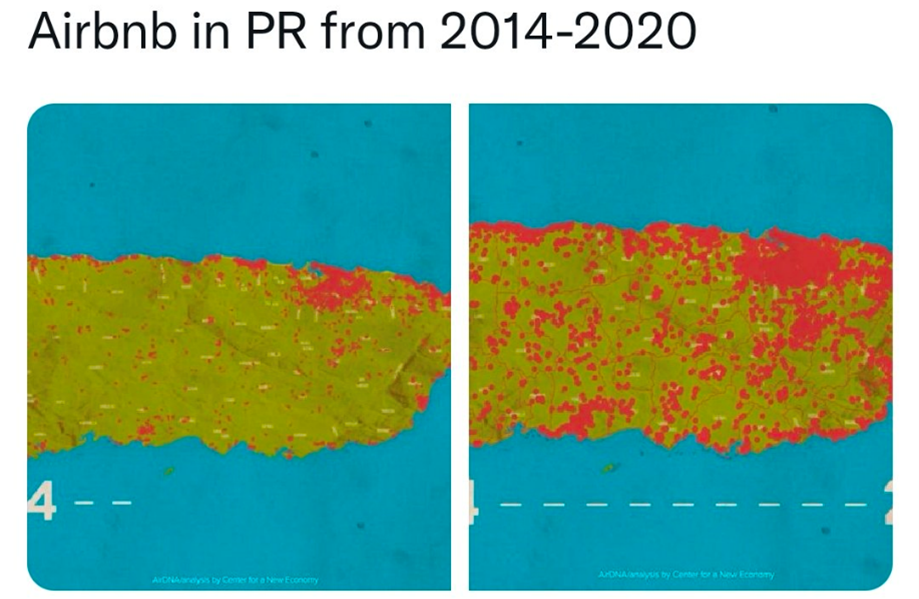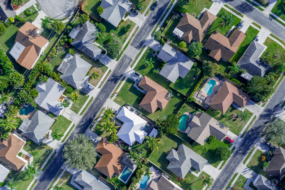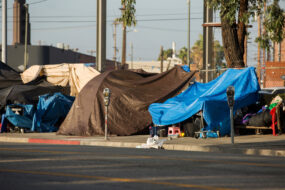
Rewind 20 years, and the options for travel lodging beyond hotels were limited. Thanks to the introduction of short-term rental companies like Airbnb and Vrbo, travelers have lots of affordable and unique stays at their fingertips. And the hosts have an opportunity to make a little extra money from their spare room or guest house.
But what started as a small movement has now exploded. And it’s beginning to have a real effect on the availability of affordable housing in large metro areas around the United States.
At the crux of this issue is that Airbnb has expanded from spare spaces in homes to hosts buying up several properties for the sole purpose of renting them out as short-term rentals.
To demonstrate this, consider these numbers. There are about 4 million Airbnb hosts globally. And yet there are over 6 million active listings. This 2 million-listing overlap means that short term rental investment properties are now the norm, not the exception.
This fact looks a little bleaker when you compare it to the state of affordable housing in America. According to the National Low Income Housing Coalition, there’s currently a shortage of 7.3 million affordable and available homes available to renters with extremely low income.
So let’s take a look at how exactly these two topics overlap, and how we may be able to have our cake and eat it, too.
Less Available Long-Term Rental Units and Higher Prices in Major Cities
Affordable housing has been in short supply the last few years due to a variety of issues, including lasting supply chain issues from the pandemic and inflation.
These issues are especially pronounced in major cities.
Take Los Angeles, for example. In about 10 years, the city lost 110,000 homes that were considered affordable, while only 13,000 new affordable housing units were built, leading to a net loss of 98,000.
Simultaneously, these places that experience the largest housing shortages are the hottest vacation spots. Meaning: a jackpot for short term rental hosts.
The coexistence of an already raging housing shortage and an influx of short-term rentals means that the problems quickly become exacerbated as dwindling housing stocks are nabbed up as investment properties.
In New York City, at one point there were more Airbnb listings than vacant apartments, much to the dismay of low-income apartment hunters.
The problem becomes clear when you map the prices of rent to the rise of short-term rental listings.
A study found that every 10% increase in listings led to a 0.42% increase in rent. Doesn’t sound so bad, right? Well, the listings increased 800% between 2011 and 2016, leading to an overall 33.6% rent increase. For reference, household incomes only rose an average of 18% over that time period.
To be clear, these rentals are not themselves at the root of this affordable housing shortage, but by digging into an already limited supply, they are not helping.
Displacement of Long-Term Residents
Because of these massive price increases, coupled with the decreased availability of dwellings, many residents who have lived in certain areas for generations are now being priced out.
This is especially pronounced in vacation hotspots where tourist traffic is high. And especially where tax breaks make for an attractive option for investors.
In places like Puerto Rico, many investors are coming from outside of the island to grab up properties and turn them into short-term rentals. Some even offer up blank checks to urge long-term residents to sell to them.
As a result, the island has become increasingly saturated with these rentals, eliminating options for residents.
Take a look at the difference between 2014 and 2020; some areas are seemingly fully stuffed with Airbnbs.

This is not only the case in tropical locales like Puerto Rico, though. The migration of masses of long-term residents of large cities like Los Angeles, New York, San Francisco and Miami is happening because of the culmination of gentrification, inflation, and short-term rental saturation.
Fewer Opportunities for First-Time Home Buyers
Home ownership is always touted as the American dream, but it is increasingly less accessible to lower income citizens.
The percentage of homeowners that were considered low-income decreased from 38.1% in 2010 to just 27.2% in 2020. And since home ownership is one of the most reliable pathways to generational wealth, this dip has real impact on the trajectory of low-income families in the United States.
How this concerning stat interacts with short-term rentals has to do with the increased buying power of those looking for investment properties, versus for a home to live in. Those buying up these homes as revenue-generators can manage more aggressive offers, since they can offset these costs with higher nightly or weekly charges.
Low-income families simply cannot compete.
When you compare 2020 to 2019, the purchase of vacation homes outpaced the rate that people purchased single family homes by more than 40%. This change in the purposes that limited supplies of homes are being purchased for further intensifies low-incomes families’ struggle to find affordable housing that can stay in their family for generations.
Ethical Short-Term Rentals Are Possible
Platforms like Airbnb and VRBO aren’t going anywhere. And more than just those benefiting from the additional income have reasons to want them to stay. They offer (sometimes) cheaper vacation stays and can give you a more authentic lodging experience when compared to large hotel chains, with hosts often adding something special to the experience.
However, like all other industries, if left unregulated, it could lead to real consequences for affordable housing issues. The key is to find a balance that helps travelers reap the benefits, while not taking away from residents of the areas where these rentals are arriving.
Strategies to Avoid Negative Consequences
The short-term rental companies have the power here to add internal restrictions, limiting the number of listings any single host can have, helping to motivate hosts to return to the more grass-roots origins of the platform.
However, some legal regulations to hold these companies accountable are often needed. In places like New York City, restrictions are already in place that limit the saturation of Airbnbs, relative to the available rental units.
Another potential action by the government to increase the availability of housing is to provide incentives for property owners to enter the long-term rental market, as opposed to short term rentals.
In short, it is 100% possible for short term vacation rentals and readily available affordable housing to coexist, it just takes a little intentional effort.









